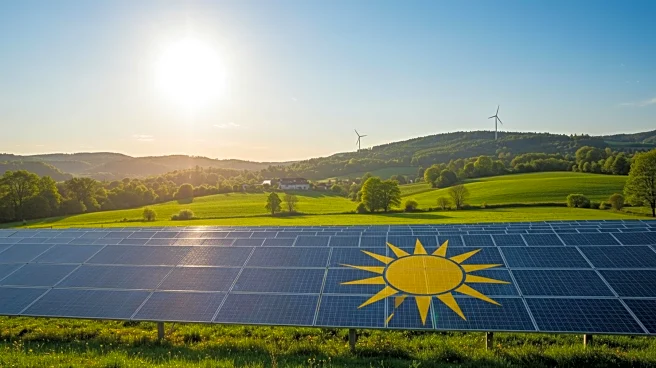What is the story about?
What's Happening?
In Arkansas, Louisiana, and Mississippi, local ordinances are creating significant barriers to the development of renewable energy projects, particularly wind and solar power. According to the Southern Renewable Energy Association, these regulations are part of a broader trend where approximately 20% of U.S. counties now restrict or ban new renewable energy developments. In Arkansas, the Wind Energy Development Act, while acknowledging the potential of wind power, imposes stringent regulations that effectively halt new projects. Similarly, Mississippi and Louisiana have introduced legislation that complicates the siting and development of wind energy projects. These regulatory hurdles are stalling clean energy initiatives and increasing costs for utility ratepayers.
Why It's Important?
The restrictions on renewable energy projects in these states have significant implications for the U.S. energy landscape. By hindering the development of wind and solar power, these ordinances could slow the transition to cleaner energy sources, which is crucial for reducing carbon emissions and combating climate change. The economic impact is also substantial, as these projects represent billions in potential investments, landowner income, and local tax revenue. The stalled projects could lead to increased reliance on fossil fuels, exposing communities to price volatility and environmental pollution. The situation underscores the importance of balanced regulations that protect local interests while promoting sustainable energy development.
What's Next?
To overcome these challenges, local governments in Arkansas, Louisiana, and Mississippi could consider adopting the American Clean Power Association’s Model Wind Ordinance. This framework offers guidelines for voluntary participation, science-based standards, and clear permitting processes, which could facilitate the development of renewable energy projects while addressing community concerns. By implementing smart, transparent ordinances, these states can attract investment, support economic growth, and enhance energy security. The adoption of such measures could also prevent costly legal disputes and ensure that local communities benefit from the transition to renewable energy.















